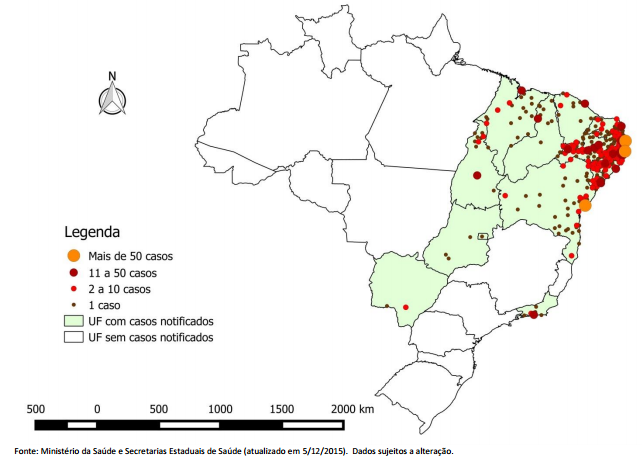January 29, 2016
An investigation was launched into vaccines used at a
UK school for boys after several students fell ill from receiving the
jabs.
As many as 15 Year 10 students at the Northampton School for Boys collapsed onto the floor Tuesday following a series of vaccines which resulted in severe adverse side effects.
As one mother who preferred to remain anonymous described: “Several different vaccines were being administered, and around 10 to 15 pupils keeled over and paramedics were called.”
Children were also witnessed “on their backs on the floor with their legs up on chairs,” the mom said.
“The rest of the jabs were cancelled and a letter was sent home to the parents of pupils who had been given the jabs about what to do if they felt nauseous. Rumours say there may have been a duff batch of vaccines,” the woman said, according to the Daily Mail.
At least one child was sent to emergency care as a precaution, but was “later discharged with no further effects,” according to a letter sent home to parents.
The letter blamed “unforeseen circumstances” for the complications, and advised parents to monitor their child’s health, specifically looking for signs of dizziness, nausea or skin rash:
“Dear Parent/Carer, please be advised the immunisation session your child attended today was suspended due to unforeseen circumstances,” the letter reads.
“Some of the vaccinated children have become unwell shortly after vaccination. Your child has received their scheduled vaccination and, while we are not expecting him to become unwell, we are advising if he experiences sensations of dizziness, nausea, skin rash, or breathing difficulties to seek the appropriate medical advice.”
UK public health officials responded that the illnesses which followed administration of the Meningitis ACWY vaccines were an “isolated incident” and not the result of a bad batch, indicating no further investigation is required and that the vaccine program will continue at a later date.
“Public Health England are satisfied this is an isolated incident and is not related to a batch issue of the vaccines,” a message disseminated by the Northamptonshire Healthcare Foundation Trust said in a statement. “NHFT School nursing team contacted all parents/carers to inform them of the situation providing assurances of the steps taken and will be rescheduling the vaccination programme in due course.”
As reported by Infowars last April, a nationwide UK meningococcal vaccine program has been launched, specifically targeting infants, despite vaccine inserts warning that “Safety and effectiveness… have not been established in children younger than 10 years of age.”
Additionally, side effects up to and including death have been reported to the Vaccine Adverse Events Reporting System regarding meningococcal vaccines produced for serotypes A, C, Y and W-135.
The National Vaccine Information Center reports:
Related:
Three Interesting Women Against Vaccination - Make Sure to View Related Links at the Bottom of the Page
As many as 15 Year 10 students at the Northampton School for Boys collapsed onto the floor Tuesday following a series of vaccines which resulted in severe adverse side effects.
As one mother who preferred to remain anonymous described: “Several different vaccines were being administered, and around 10 to 15 pupils keeled over and paramedics were called.”
Children were also witnessed “on their backs on the floor with their legs up on chairs,” the mom said.
“The rest of the jabs were cancelled and a letter was sent home to the parents of pupils who had been given the jabs about what to do if they felt nauseous. Rumours say there may have been a duff batch of vaccines,” the woman said, according to the Daily Mail.
At least one child was sent to emergency care as a precaution, but was “later discharged with no further effects,” according to a letter sent home to parents.
The letter blamed “unforeseen circumstances” for the complications, and advised parents to monitor their child’s health, specifically looking for signs of dizziness, nausea or skin rash:
 |
| Click Pic to Enlarge |
“Dear Parent/Carer, please be advised the immunisation session your child attended today was suspended due to unforeseen circumstances,” the letter reads.
“Some of the vaccinated children have become unwell shortly after vaccination. Your child has received their scheduled vaccination and, while we are not expecting him to become unwell, we are advising if he experiences sensations of dizziness, nausea, skin rash, or breathing difficulties to seek the appropriate medical advice.”
UK public health officials responded that the illnesses which followed administration of the Meningitis ACWY vaccines were an “isolated incident” and not the result of a bad batch, indicating no further investigation is required and that the vaccine program will continue at a later date.
“Public Health England are satisfied this is an isolated incident and is not related to a batch issue of the vaccines,” a message disseminated by the Northamptonshire Healthcare Foundation Trust said in a statement. “NHFT School nursing team contacted all parents/carers to inform them of the situation providing assurances of the steps taken and will be rescheduling the vaccination programme in due course.”
As reported by Infowars last April, a nationwide UK meningococcal vaccine program has been launched, specifically targeting infants, despite vaccine inserts warning that “Safety and effectiveness… have not been established in children younger than 10 years of age.”
Additionally, side effects up to and including death have been reported to the Vaccine Adverse Events Reporting System regarding meningococcal vaccines produced for serotypes A, C, Y and W-135.
The National Vaccine Information Center reports:
[A]s of September 30, 2015, the federal Vaccine Adverse Events Reporting System (VAERS), which includes only a small fraction of the health problems that occur after vaccination in the U.S., had recorded more than 1,846 serious health problems, hospitalizations and injuries following meningococcal shots, including 99 deaths with about 34% of the deaths occurring in children under age six.
Three Interesting Women Against Vaccination - Make Sure to View Related Links at the Bottom of the Page















